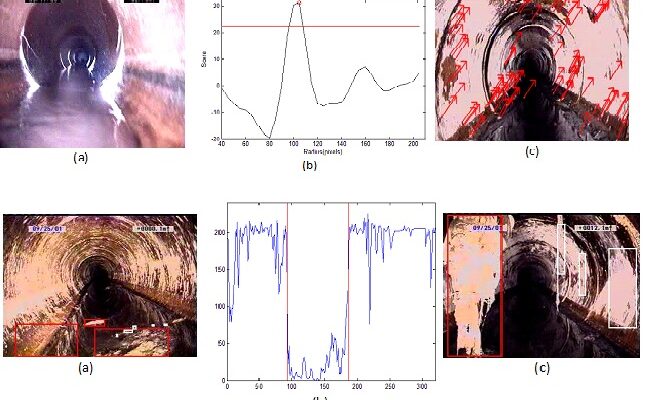Overview
Project: Pilot Study on Automated Analysis and Defect Detection in Sewer CCTV Inspection Videos of a Canadian Utility
IDS worked with a leading Canadian consulting company to undertake a pilot project using the IDS SewerVizTM software to automate the analysis and sewer defect detection of large volume of CCTV videos collected in a major Canadian City. The project involved the analysis of a large set of CCTV videos to automatically identify and locate sewer defects including cracks, tree root intrusion, joint displacement, and excessive sedimentation/debris. The results demonstrated the viability and effectiveness of SewerVizTM, and identified areas of improvement to enable its wider application and enhance the robustness of its algorithms.

Challenge
For decades, municipalities have been using Closed circuit television (CCTV) sewer inspection systems for inspecting sewers. However, CCTV inspections are known to be time consuming, costly, and heavily dependent on operator’s interpretation, experience, and skill level. CCTV inspections require time-consuming audits off-site to ensure quality, accuracy, and consistency. While municipalities lack adequate historical sewer information to develop deterioration models, the wealth of information stored in thousands of hours of archived CCTV videos cannot be feasibly analyzed to extract meaningful condition data. Unfortunately, there are no software solutions that can support automated defect detection and cost-effective analysis of CCTV videos.
Solution
SewerVizTM is the IDS’ novel software solution for automated detection and classification of sewer defects in CCTV videos, which would help ensure the accuracy and consistency of inspection data, while reducing the time and cost of the inspection process. SewerVizTM implements sophisticated computer vision and machine learning algorithms for tracking and analyzing the movement of the camera, image segmentation, and automated detection of structural and functional defects.
In this project, 15 CCTV videos collected in a major Canadian City were analyzed. The videos were captured in a wide range of different conditions (e.g., different sewer material and diameter). SewerVizTM was capable of detecting and classifying several types of defects including longitudinal and circumferential cracks, fractures, tree root penetration, excessive sedimentation/debris, and open or displaced joints. For more technical discussion of the algorithms used in SewerVizTM, Please see the following links to published peer-reviewed journal articles.
- Integrated Vision-Based System for Automated Defect Detection in Sewer Closed Circuit Television Inspection Videos (http://ascelibrary.org/doi/abs/10.1061/(ASCE)CP.1943-5487.0000312)
- Efficient Algorithm for Crack Detection in Sewer Images from Closed-Circuit Television Inspections
(http://ascelibrary.org/doi/abs/10.1061/%28ASCE%29IS.1943-555X.0000161) - Optical flow techniques for estimation of camera motion parameters in sewer closed circuit television inspection videos (http://www.sciencedirect.com/science/article/pii/S0926580513001842)
- Automated defect detection in sewer closed circuit television images using histograms of oriented gradients and support vector machine (http://www.sciencedirect.com/science/article/pii/S0926580513001805)
